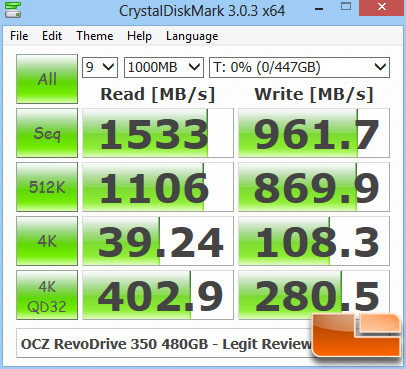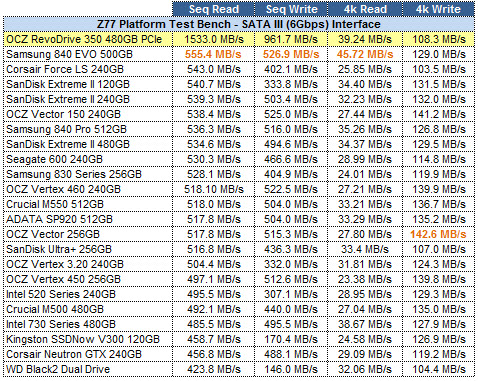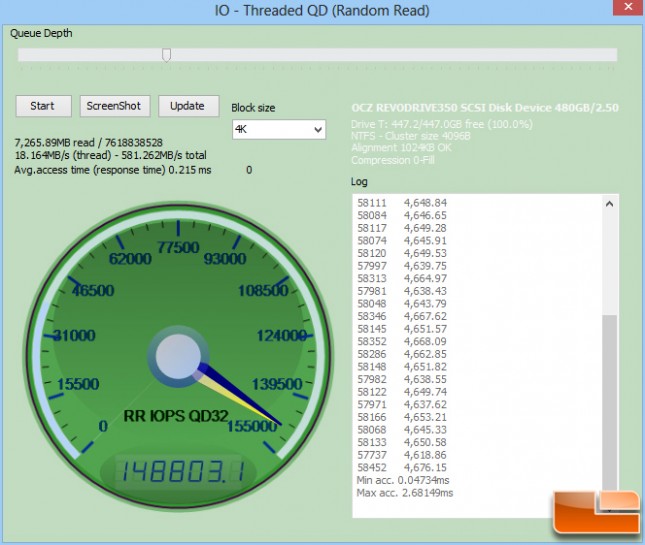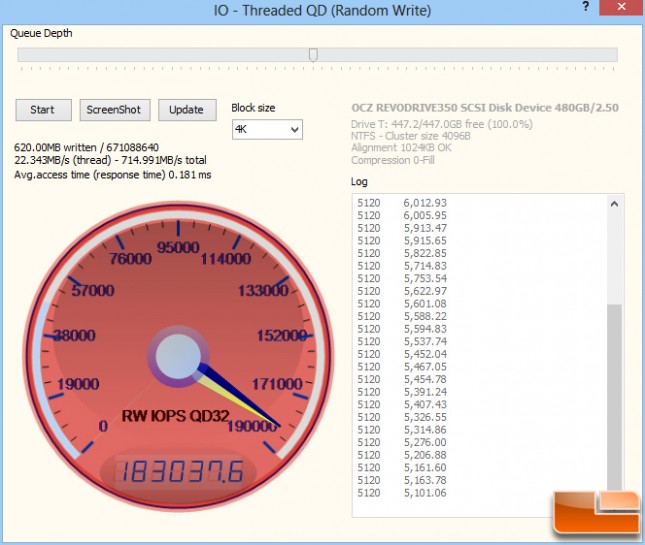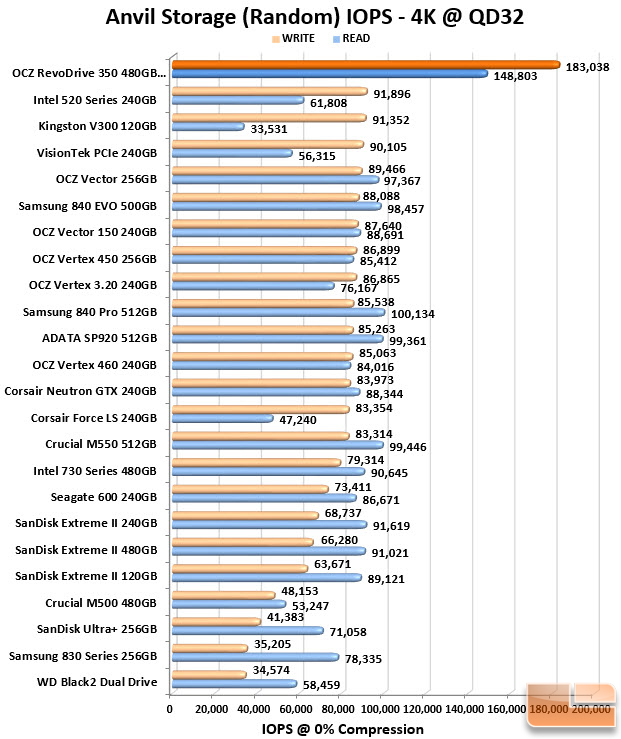OCZ RevoDrive 350 480GB PCIe SSD Review
CrystalDiskMark & Anvil IOPS
CrystalDiskMark is a small benchmark utility for drives and enables rapid measurement of sequential and random read/write speeds. Note that CDM only supports Native Command Queuing (NCQ) with a queue depth of 32 (as noted) for the last listed benchmark score. This can skew some results in favor of controllers that also do not support NCQ.
CrystalDiskMark 3.0.2 x64 – Intel Z77 Platform
Benchmark Results: Again, performance not as good here as we saw on ATTO but it still way ahead of the SATA III drives, at least on the sequential benchmarks. The 4K numbers are actually pedestrian in contrast.
Along with the move to a new platform, we decided to make a change in one of the benchmarks. There’s a relatively new benchmark called Anvil Storage Utilities that is in beta but close to production. It’s a very powerful tool that measures performance through a variety of tests which can be customized. Since some of the tests more or less duplicate what we get from other benchmarks we use already, we decided to use the IOPS (Input/Output Operations Per Second) testing on 4kb file sizes at a queue depth of 32. IOPS performance is something SSD makers tout quite a bit but we generally don’t do a lot of IOPS testing because frankly a lot of users can’t relate to IOPS metrics as well and it tends to be more meaningful to the enterprise/server crowd. Still, it is another performance indicator with relevance and while some drives post good MB/s numbers, their IOPS scores aren’t always commensurate which this test will prove out.
Benchmark Results: IOPS numbers are off the charts (literally, the graph axis values needed adjusting) as you’d expect with results double that of the fastest SATA III drives we’ve tested.

